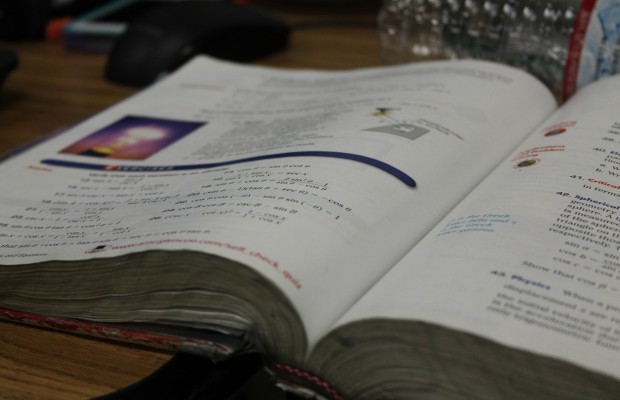Common core scores cannot be ignored

Last year’s Smarter Balanced Assessment Consortium (SBAC), now called California Assessment of Student Performance and Progress (CAASPP), scores have been released and for NPHS, are lower than ever before. So low in fact that Newbury Park High School did not place in the top 500 schools on Newsweek, published by the US College Board.
From 2015 to 2016, Newbury Park’s math scores dropped by 11% and English scores remain low. Mr. Joshua Eby, principal, summarized that test scores are imperative in the evaluation of schools in a new ranking system that the California State Department created. Our poor performance will impact our ranking and the way colleges evaluate the school in November when they begin accepting admission applications. The yearly test scores also affect property values surrounding the NP campus.
Eby explains, “as we start the college application process, or even going for a simple job, if [students] are saying [they] went to Newbury Park High School, a lot of people do look at that rating index which is a part of the CAASPP. There is definitely an indirect effect [from the ranking].”
Eby examines the test’s impact on the school saying,”I think in the end we want our students to be proud of the school they go to and so the first thing is that piece, that we want the test score to be representative of who the students are and how outstanding the students are that we have at this school, so when [a] student chooses to just put in a random essay and to not really read the multiple choice portion, that becomes a reflection on our school.”
Andy Reddy, senior, expresses his disappointment that others’ scores impact everyone’s chances, especially since he legitimately put effort into his test. He believes that “other people’s scores shouldn’t affect your chances of getting into college,” and that, “many students didn’t take it seriously, not knowing of its consequences.” He firmly states, “I don’t like the idea of it affecting our school ranking simply because of lack of knowledge about its significance. The system has good intentions, but the emphasis wasn’t placed properly.”
Amaan Kazi, senior, explains that he “didn’t know whether to really give the test legitimacy.” “Some of the staff didn’t show any concern, they made a lot of fun of it, so it created an atmosphere that no one cared,” Kazi said. “They just told us the day before.” Students were put under the impression that this test had no effect on our school. The outcome could’ve been different “if they told us at the beginning of the school year, showed us why it was important, and kept hitting that home.” He laments, “I didn’t know the extent to which it would affect our school.”
Emily Taketa, senior, notes, “I put effort in, but not really my best work since it was during school, mostly I focused on getting back to class, instead of double checking my work.”
“I found out that it was an official ranking that actually affected our school and college and our housing prices after I took it” she vocalizes her frustration at the system, “because a lot of the top students actually opted out of taking it because they would rather be in class, or didn’t want to waste the time.” Taketa finds it unfair that students, ”were told to do well, but to hurry because we were missing valuable lesson time.” She wishes that, “people knew the gravity of our performance because no one took it seriously.”
Taketa hopes that future classes learn from their mistakes and, “improve next year’s ratings and awareness”. “Our school deserves a better score,” she finishes.
